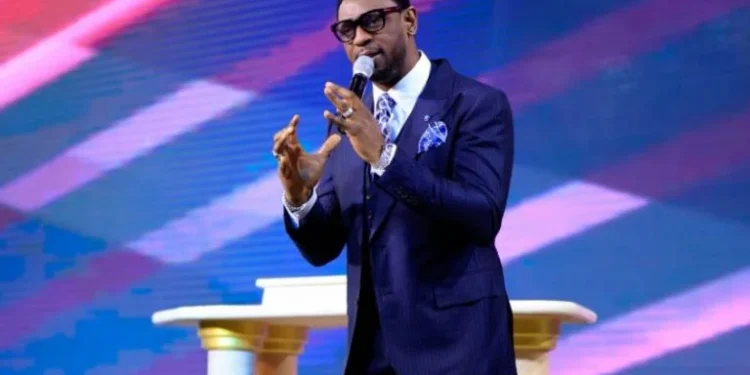Biodun Fatoyinbo, Senior Pastor of the Commonwealth of Zion Assembly (COZA), has come under fire following remarks he made about the late Apostle Joseph Ayodele Babalola, a revered prophet in the Christ Apostolic Church (CAC).
Speaking during a recent sermon, Fatoyinbo described Babalola as “an anointed man of God” who, despite his spiritual influence, “had no money” during his lifetime.
“I was studying recently about what Apostle Babalola did,” Fatoyinbo said. “I stand to be corrected, but if what God did through him had been properly documented, people would come here for pilgrimage. He carried heavy grace, but he had no money. Where are his children today? I’m sure some of them will hate God.”
The clip quickly went viral, drawing widespread criticism from Nigerians—especially within the Christian community—who accused the COZA pastor of judging Babalola’s ministry through a materialistic lens.
CAC Responds
In a detailed statement, Ade Alawode, Director of Publicity for CAC, described Fatoyinbo’s remarks as “insensitive” and “misguided,” stressing that ministerial success should not be equated with material wealth.
“Ethically speaking, Apostle Babalola had children who, by now, would be advanced in age—possibly as old as your grandparents,” the statement read. “What exactly was the intention behind asking, ‘Where are the children of Babalola?’”
Alawode questioned the theological foundation of such prosperity-focused preaching, warning that it promotes greed, corruption, and moral decay in a society already facing serious ethical challenges.
For clarity, he outlined key facts about Babalola’s life and ministry:
- Divine Calling: Babalola received his calling on October 10, 1928, at the age of 24, ministering across Western and Midwestern Nigeria and even the Gold Coast (now Ghana). His ministry was marked by undeniable signs and wonders.
- Service and Sacrifice: He donated lands to the church, funded education for many, fed the poor, and lived sacrificially, often caring for more people than just his biological children.
- Recognition: When Queen Elizabeth II visited Nigeria in 1956, Babalola was among the distinguished guests—proof, Alawode argued, that he was far from impoverished or disregarded.
- Provision Without Exploitation: Though he never solicited funds aggressively, Babalola recorded instances of divine provision in his diaries. He lived in a decent home, drove one of the finest Ford Jeeps of his time, and personally sponsored weddings, education, and apprenticeship programs.
Alawode concluded by urging preachers to ground their teachings in Scripture rather than in wealth-based measures of success.















